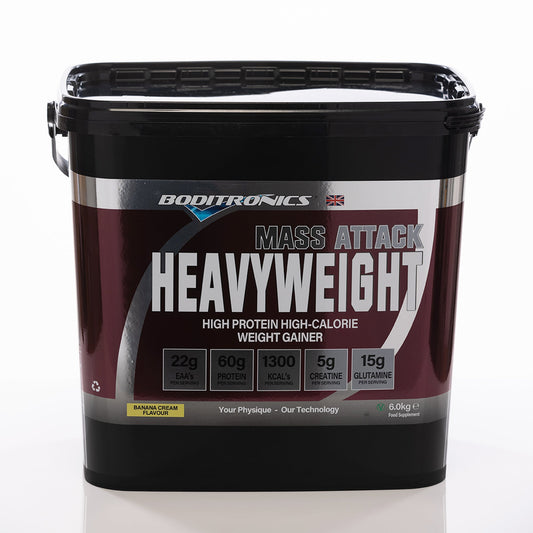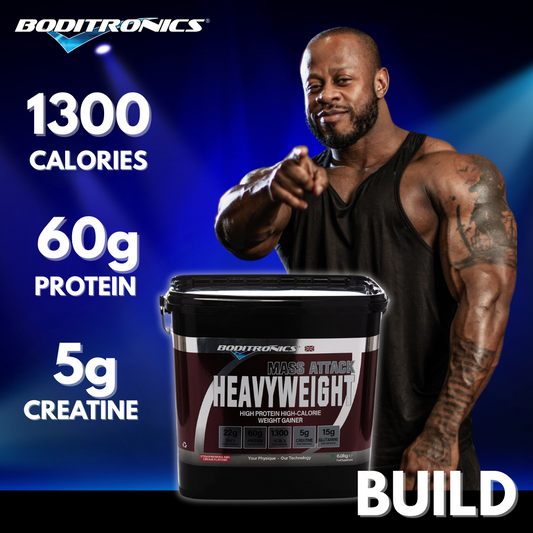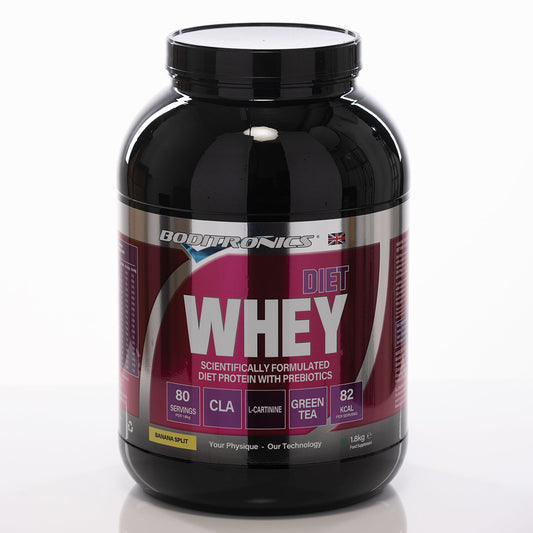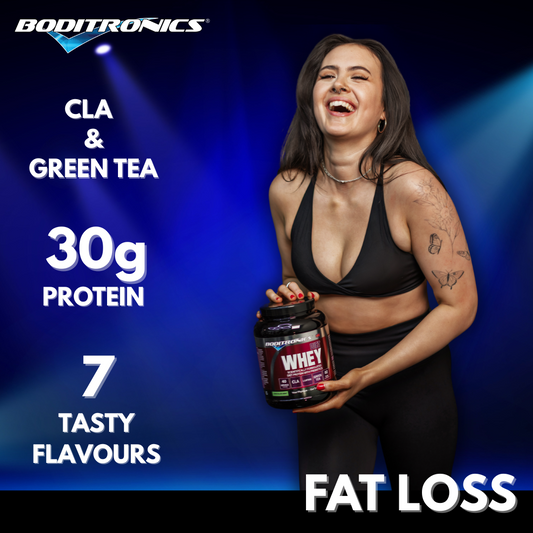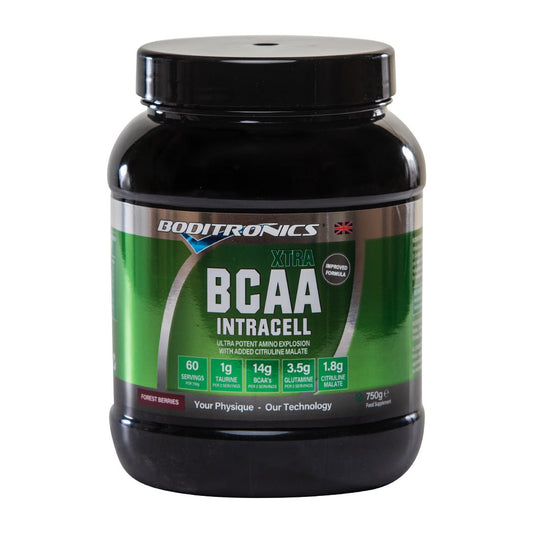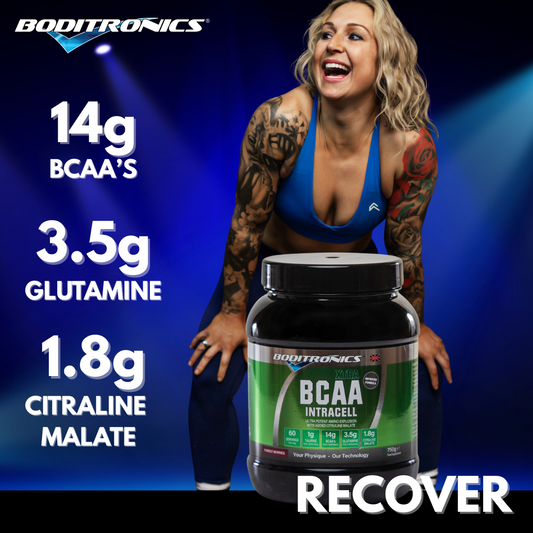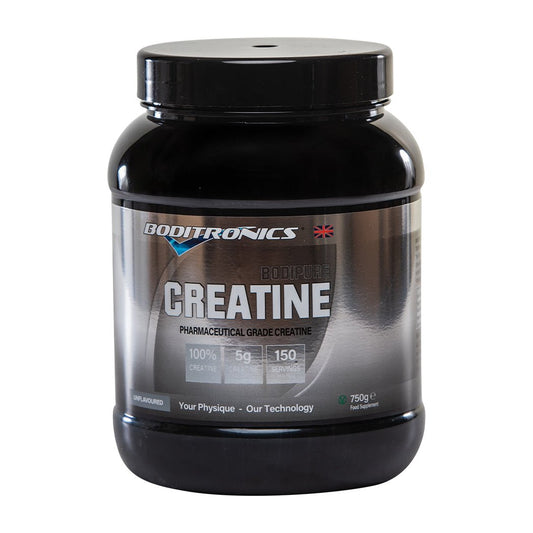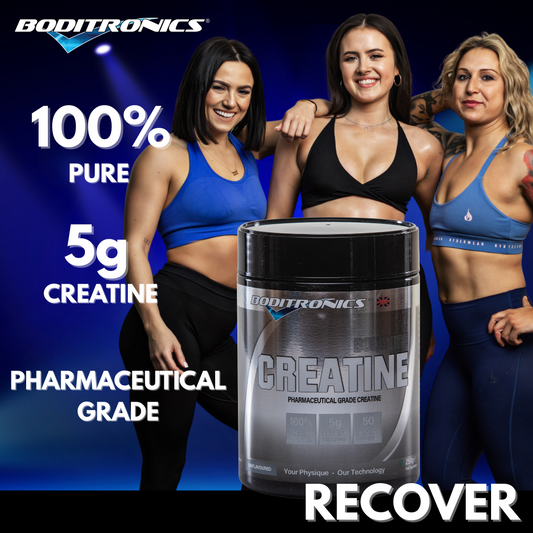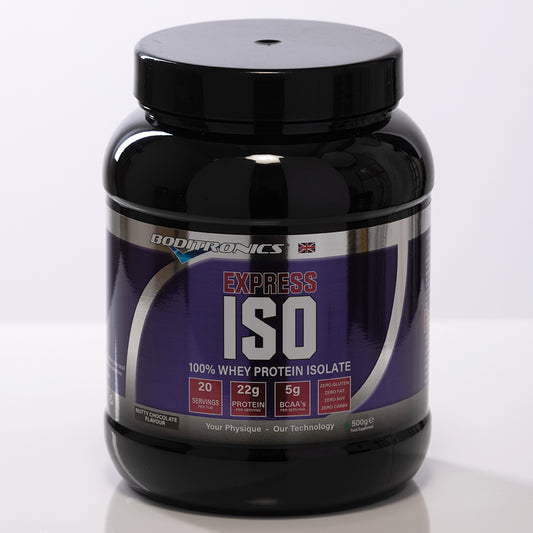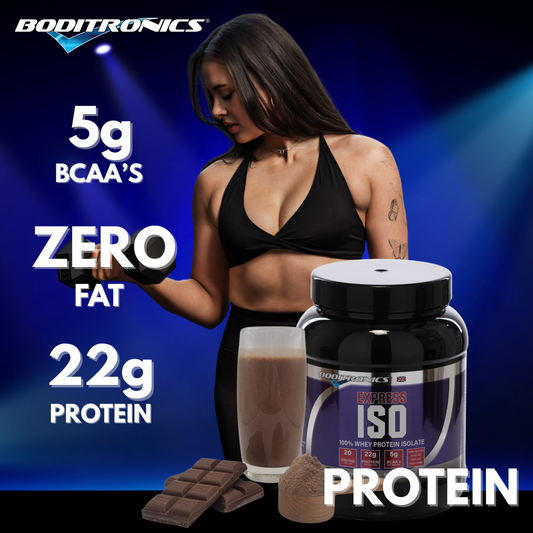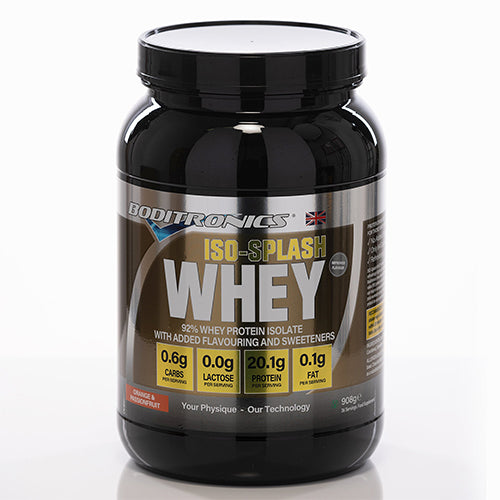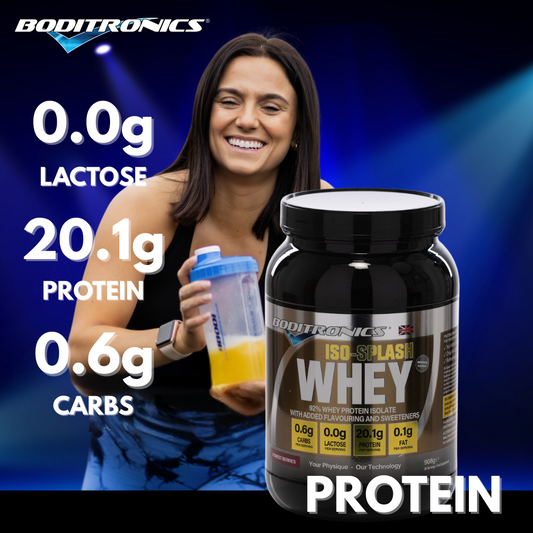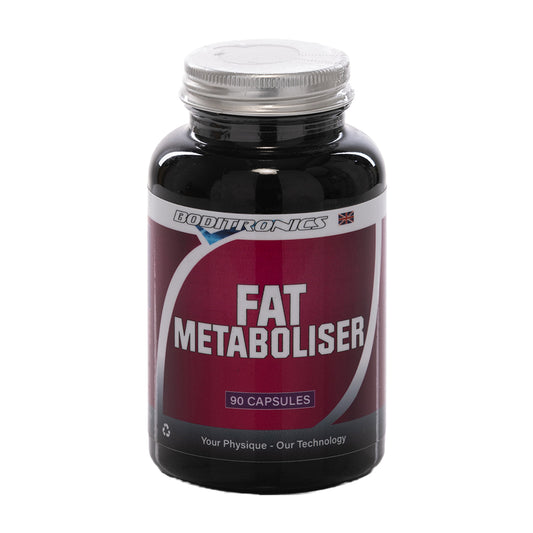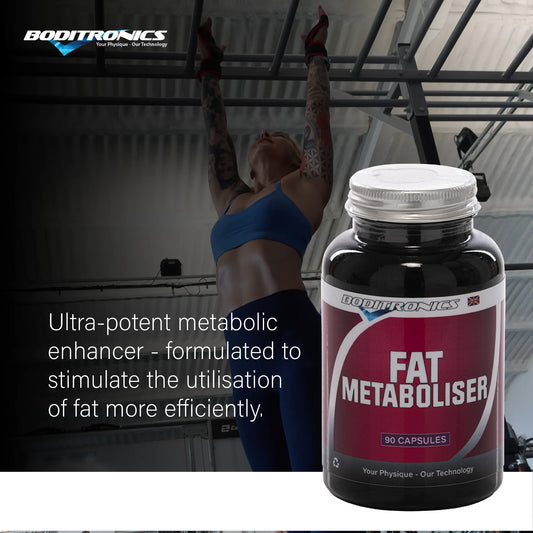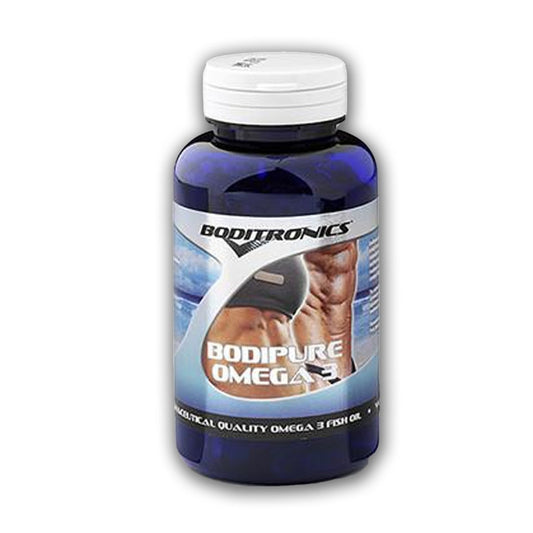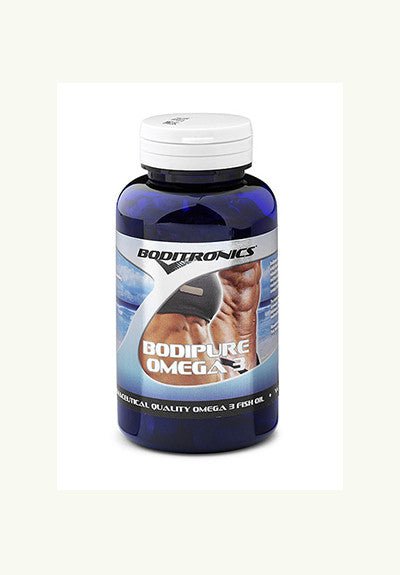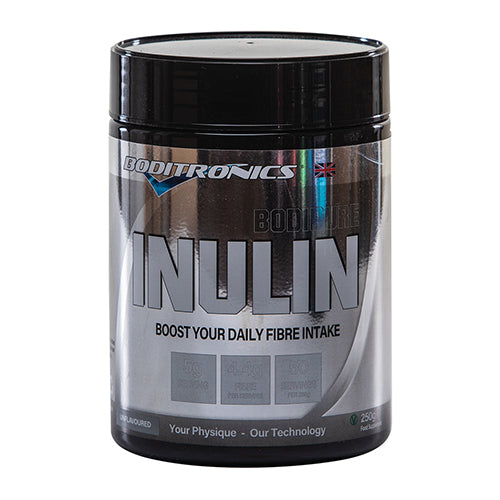-
Diet Whey Protein Powder with Prebiotics - Flavoured
Description Boditronics Diet Whey is designed to help achieve the goal of a healthy, lean and toned physique. When used in conjunction with a suitable calorie-controlled diet and training regime, Diet Whey can be used as a meal replacement* to help maintain lean muscle mass...- From £23.29
£39.19- From £23.29
- Unit price
- per
-
Bodipure Creatine Powder - Pharmaceutical Grade Creatine - Unflavoured
Description Boditronics Bodipure Creatine is made with DCD free technology to bring you the purest Creatine. The 100% micronised Creatine Monohydrate is HPLC tested and analysed for 100% purity. It is the very best Creatine Monohydrate available and offers athletes the following benefits: Increased...- From £13.55
- From £13.55
- Unit price
- per
-
ISO Express 100% Whey Protein Isolate Powder - Flavoured
ISO Express 100% Whey isolate contains 100% of the highest quality Whey Protein Isolate – the purest and cleanest form of Whey Protein available. Each serving contains 22g of protein, ZERO Carbs, ZERO Sugars and is Soy & Gluten Free. This Boditronics express iso...- From £29.39
£39.19- From £29.39
- Unit price
- per
-
ISO-SPLASH Clear Whey Protein Powder - 92% Whey Protein Isolate - Flavoured - 908g
ISO-SPLASH Whey For those who prefer a lighter protein drink ISO splash whey isolate contains the very best clear Whey Protein Isolate available and has virtually no fat, carbohydrates or lactose present. It’s also refreshingly fruity tasting and is available in a variety of...- £53.33
£55.99- £53.33
- Unit price
- per
-
Boditronics Fat Metaboliser
Description Ultra-potent metabolic enhancer - formulated to stimulate the utilisation of fat more efficiently. Boditonics Fat Metaboliser is the updated, ultra-potent version of Boditronics’ popular Lypodryl metabolic enhancer. It is believed that alongside a calorie controlled diet, fat metabolisers can assist weight loss and...- £19.99
- £19.99
- Unit price
- per
-
Bodipure Omega 3 Fish Oil Capsules - 90 Capsules
Boditronics Bodipure Omega 3 contains the fatty acids EPA and DHA which have been shown to be essential for a range of body functions related to the brain, eyes, cardiovascular system, inflammatory response and the skin. If you eat less than one portion of...- £16.29
- £16.29
- Unit price
- per
-
Inulin Probiotic and Bifidogenic Powder- Unflavoured - 250g
Description Boditronics Inulin is a dietary fibre extracted from chicory root. Inulin fibre slows digestion and increases fullness. It is also a probiotic and bifidogenic which also aids digestion. Improve your daily nutrition with Boditronics Inulin, a natural dietary fibre extracted from chicory root. Our...- £10.99
- £10.99
- Unit price
- per
Recently Viewed Products
Example product title
- £19.99
- £19.99
- Unit price
- per
Example product title
- £19.99
- £19.99
- Unit price
- per
Example product title
- £19.99
- £19.99
- Unit price
- per
Example product title
- £19.99
- £19.99
- Unit price
- per
Example product title
- £19.99
- £19.99
- Unit price
- per
Example product title
- £19.99
- £19.99
- Unit price
- per
Example product title
- £19.99
- £19.99
- Unit price
- per
Example product title
- £19.99
- £19.99
- Unit price
- per
Example product title
- £19.99
- £19.99
- Unit price
- per
Example product title
- £19.99
- £19.99
- Unit price
- per
- Choosing a selection results in a full page refresh.
